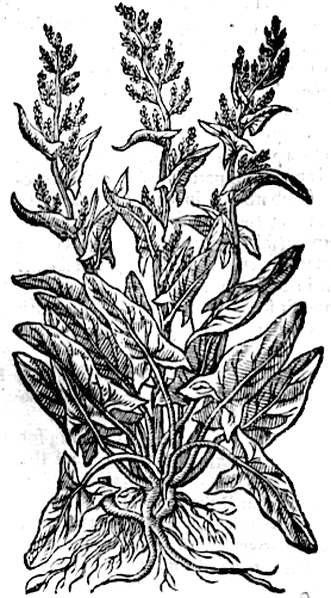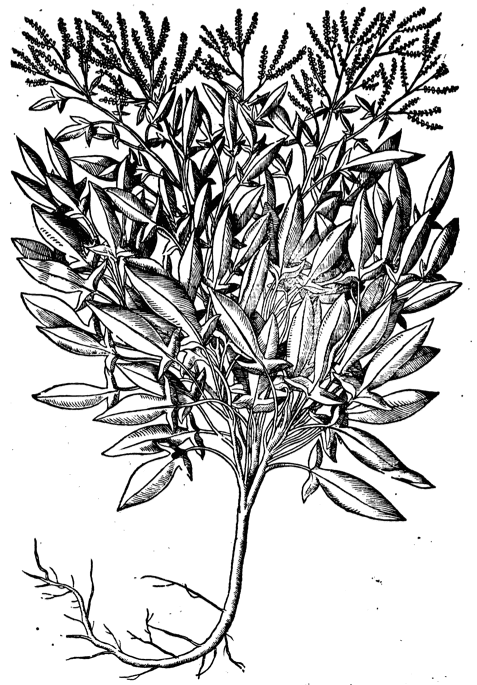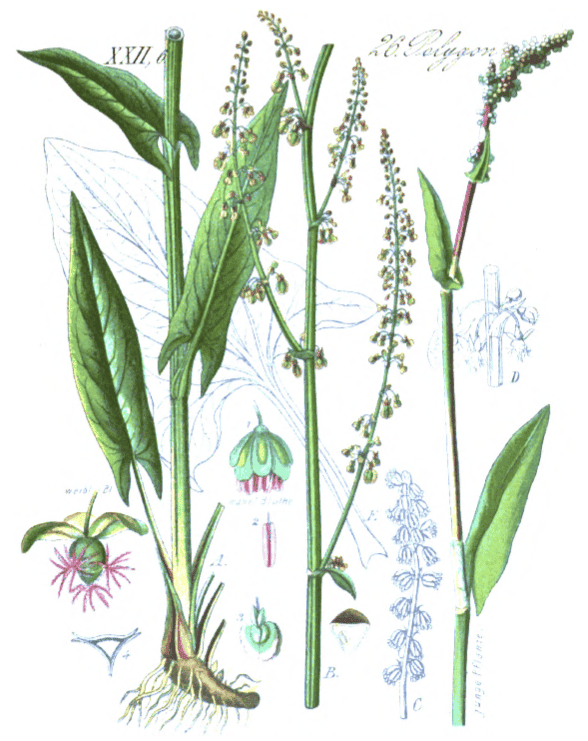Acetosa, Sorrel
Oxalis
 Acetosa
AcetosaHerbarius latinus, Petri, 1485 |
 Acetosa
AcetosaOrtus Sanitatis, Meydenbach, 1491 |

|

|
|
Acetosa Gerards Herbal, 1636 |
Acetosa minor New Kreuterbuch, Matthiolus, 1563 |
 Flora von Deutschland (9), Kohler, 1882
Flora von Deutschland (9), Kohler, 1882 Members CLICK HERE for the PRO VERSION
Members CLICK HERE for the PRO VERSIONBotanical name:
Rumex acetosa (syn. Acetosa vulgaris)
Greater and Lesser types were known; Lesser type appears to be ‘Sheep Sorrel’
Parts used:
Herb, Seed; also the Roots
Temperature & Taste:
Cool, dry. Sour
Classification:
2A APERIENT MEDICINES. 2B ATTENUATERS
3B. FEBRIFUGE & ANTIPYRETIC. 3D. CORDIALS & CARDIACS
4c. CARDIAC. 4e. STOMACHIC. 4g. HEPATIC. 4h. NEPHRITIC. 4j. NERVINES
Uses:
1. Clears Heat from the Stomach and Liver:
2. Clears Heat, Cools the Blood, Stops Bleeding:
3. Clears Heat, Refreshes the Spirit:
4. Clears Heat and Damp, Promotes Urine:
Dose:
… available in PRO version
Substitute:
… available in PRO version
Corrective:
… available in PRO version
Main Combinations:
… available in PRO version
Major Formulas:
Decoction to Cool the Blood (Wirtzung)
Cordial Decoction (French Pharmacopoeia)
Troches of Ramich (Mesue)
Troches of Spodium (Trochisci Spodii) (Avicenna
Cautions:
1. Large doses may irritate the Stomach.
2. Large doses may produce urinary irritation with polyuria.
4. It may cause a mild dermatitis when used externally.
5. ‘Hurtful to Melancholy persons’. (Pemell, Tractus de Facultatibus simplicium, 1653)
Main Preparations used:
Conserves of the leaves; Distilled Water; clarified and thickened Juice; Syrup of the leaf juice
